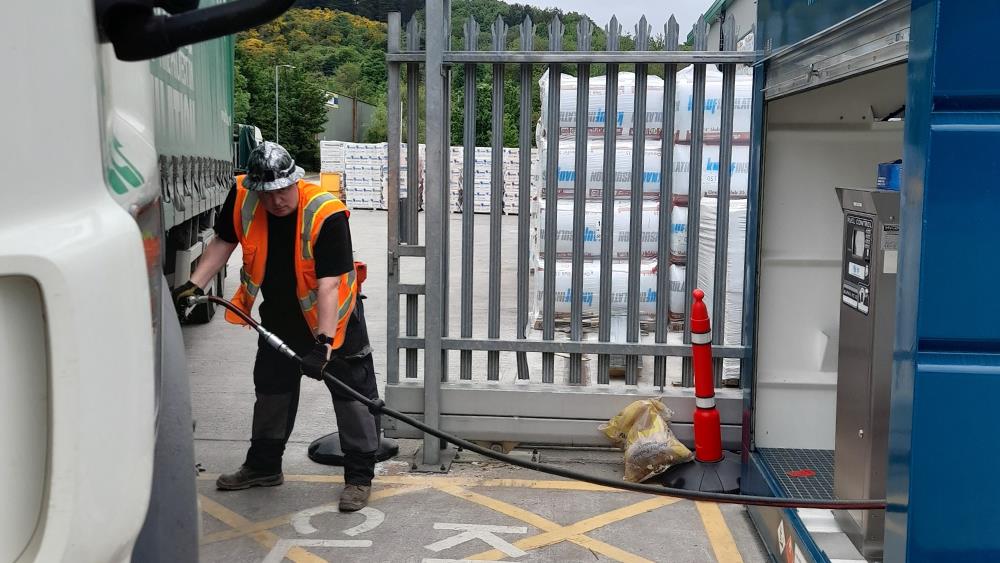

CCF has invested in a new sustainable fuel source to cut carbon emissions across its delivery fleet.
CCF has introduced hydrotreated vegetable oil (HVO) refuelling sites at several of its branches across the country to provide part of its delivery fleet with a low carbon alternative to the use of diesel fuel.
The shift to a more sustainable fuel source is part of CCF’s commitment to decarbonise its deliveries to customers by steadily reducing the carbon footprint generated by its lorries. An HVO lorry's footprint is up to 92% smaller than that of those using diesel.
The HVO used by CCF is sustainably sourced and made from waste materials such as used cooking oils and other waste oils. In addition to reducing carbon dioxide, it has the potential to reduce other emissions, including nitrogen oxide by up to 30% and particulates by up to 85%, and requires no modification to existing diesel engines.
For the company, the move is a way to support customers who are working on low carbon schemes or simply wish to reduce the embodied carbon within their supply chain. It also supports CCF’s growing involvement in the public sector where distributors, main contractors and specialist contractors have to work together to help deliver the decarbonisation ambitions of the government’s Net Zero strategy.